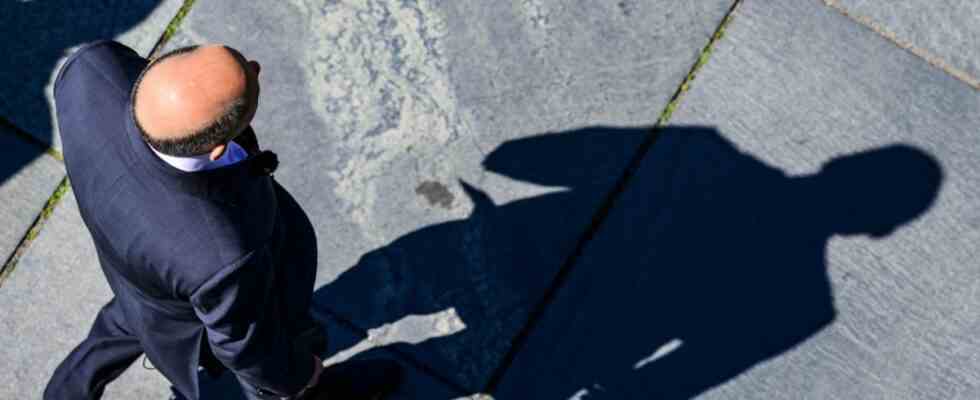It has to be right this time. Papers have been written and expectations raised for days – now the traffic light has to deliver. The coalition committee will meet on Saturday morning, after which the third relief package should be ready. However, the government is not only under pressure to deliver a package that is convincing in terms of content, which gives those who are particularly suffering from the financial burdens the feeling: Yes, we can get through the next few months with this. No, it’s also about the B grade, if you like: performance.
She wasn’t very happy lately. Social Democratic taunts against the Green Economics Minister, who was under pressure, Green broadsides against the SPD Chancellor: the blessing of the coalition hung crooked, in the middle of the crisis. After the chancellor claimed in Meseberg that they were working “very confidentially, very carefully” for a “very good and well-tailored program,” it was clear: this time the content and packaging had to be right. The relief package has long been charged with a significance that transcends its mere monetary dimension.
On Friday, a confident Chancellor Scholz signaled on the sidelines of the SPD parliamentary group meeting in Dresden that they would meet and that the package had already been well prepared. The coalition is united by the desire to give the impression that we have it under control. This is one of the reasons why unusually intensive work was carried out to ensure that the next relief package was delivered in an attractive form.
The coalition has not had good experiences with night meetings
This became visible in the curious appointment of the coalition committee. For days it remained unclear on which day the protagonists would meet. In addition to the calendar comparison, there was also the imponderability of whether the differences in content would be able to be cleared up by the respective day X. Because that is also part of the B grade: none of the three partners want a night session. In the coalition negotiations, they had already decided not to use such dubious formats. And when this intention was violated in the second relief package, an expensive but inconsistent hodgepodge promptly emerged. But if you don’t want to negotiate for 20 hours at a time, you have to clear up the biggest differences beforehand.
But that takes time, while time is pressing. Next week, the Bundestag will start parliamentary work after the summer break with a budget week. Accordingly, the general debate on the Chancellor’s budget is scheduled for Wednesday – and the traffic light should have little interest in the fact that the speech by opposition leader and CDU leader Friedrich Merz writes itself. Just because the SPD, Greens and FDP are still working on their relief package.
With all the expectations of form and function, the government still faces the task of not allowing panic to arise, but still conveying the seriousness of the situation. SPD leader Lars Klingbeil said Süddeutsche Zeitung: “We have to make it clear that we cannot compensate for everything. Those who are doing well will suffer losses, but they can cope with that. We have to help those who are really in existential need.” That is what should be different about this aid package, which is to be put together in the Chancellery on Saturday compared to previous aid: support is no longer based on the watering can principle. “We have to be able to help more precisely,” said Klingbeil. The Greens and FDP have already made it clear that they want to design the new aid more precisely and needs-based. In addition, all three partners want to heal mistakes that happened last time – for example, that pensioners were not taken into account in the energy flat rate of 300 euros.
In the polls, only the Greens benefit from the traffic light government
Unlike the Greens, the SPD and FDP have so far failed to benefit from the traffic light coalition in the polls. The Social Democrats have already fallen below 20 percent – and in October a new state parliament will be elected in Lower Saxony. Prime Minister Stephan Weil (SPD) is already feeling the displeasure with the government’s actions in Berlin during the election campaign. The FDP is also under pressure with poll numbers well below their federal election results.
“We’re currently having a lot of crises that are related to each other. It’s clear that the party that appoints the chancellor will sometimes be criticized,” says Klingbeil on the situation of the SPD. “It is crucial that at the end of this crisis people say: This chancellor did a good job on us.”
That, however, i.e. the end of the crisis, is likely to take a while. The package that was put together with great effort from this weekend – it will therefore probably not have been the last.

